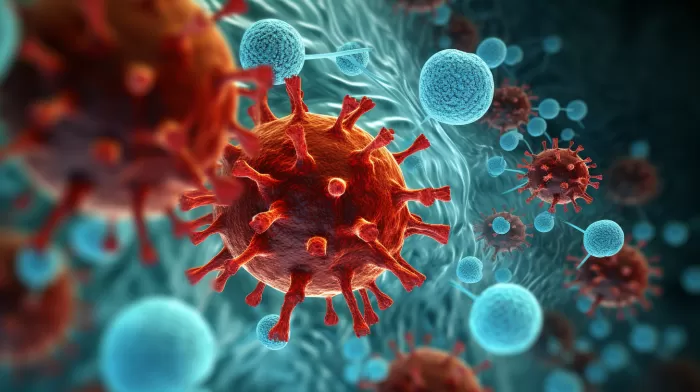While the world is focused on the COVID-19 pandemic, it’s important not to forget about another dangerous virus – Enterovirus D68 (EV-D68). It’s a severe respiratory infection that has been known to target young children. In this article, we’ll discuss the symptoms, methods of transmission, and potential ways to avoid and treat this virus.
Who is at Risk?
According to the Centers For Disease Control and Prevention (CDC), infants, children, and teenagers are most at risk of infection from EV-D68. This is because they have not yet built up a strong immunity from previous exposure to other viruses. Adults can become infected as well, but they are more likely to have either no symptoms or very mild symptoms.
What are the Symptoms?
Mild symptoms of EV-D68 may include fever, though fever is not always present. The most common symptoms are a persistent cough and a runny nose. Some children may experience body and muscle aches typical of a viral infection.
Parents should use their best judgment and seek medical care if any of these symptoms are severe. However, if the following symptoms associated with EV-D68 present, seek medical attention immediately:
- Difficulty breathing
- Wheezing
- Paralysis in the arms, legs, or facial muscles (this is a rare symptom)
How does EV-D68 Spread?
Like most respiratory illnesses, EV-D68 exists in an infected person’s saliva, nasal mucus, or sputum. This makes it likely to spread through coughing, sneezing, or touching surfaces.
How can it be Avoided?
Because EV-D68 is spread like many other common viruses, regular hand washing (at least 20 seconds with very warm water and soap) and wiping surfaces frequently with disinfectants are important steps that should be taken.
Another key factor in avoiding the virus is maintaining adequate levels of vitamin D3. Proper levels of vitamin D3 help maintain a healthy immune system. Most people today are low on vitamin D3, especially dark-skinned individuals and people living in northern latitudes. You can obtain more information on vitamin D levels and their importance from the Vitamin D Council.
What is the Treatment?
There is no vaccine for EV-D68, and no antivirals that are effective, therefore it’s important to treat the symptoms. For mild respiratory illness, you can help relieve symptoms by taking over-the-counter medications for pain and fever. Aspirin should not be given to children.
If you are concerned, especially in regards to a child’s symptoms, seek medical care from a pediatrician. Some people with severe respiratory illness may require hospitalization.
In conclusion, while Enterovirus D68 may not be as prevalent as COVID-19, it is crucial to be aware of this virus and the risks it poses, especially to young children. By understanding the symptoms, methods of transmission, and potential ways to avoid and treat the virus, you can better protect your family and yourself.



